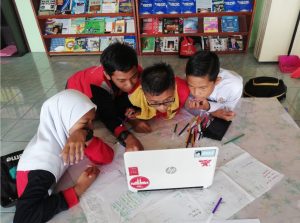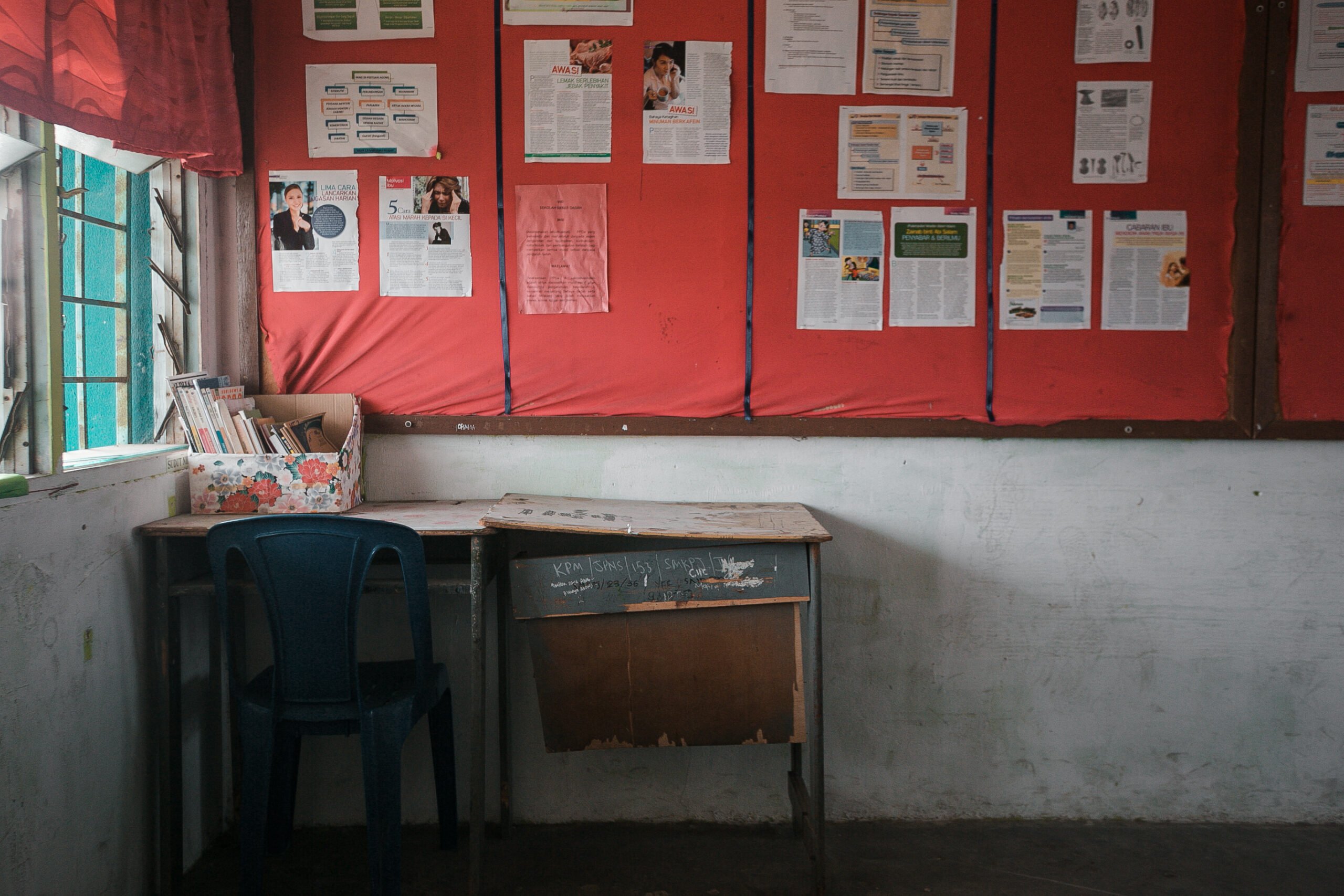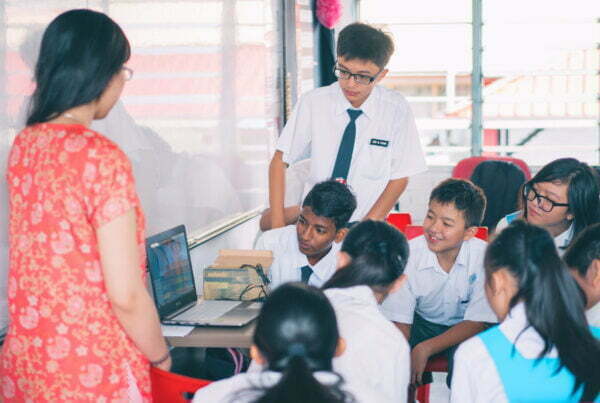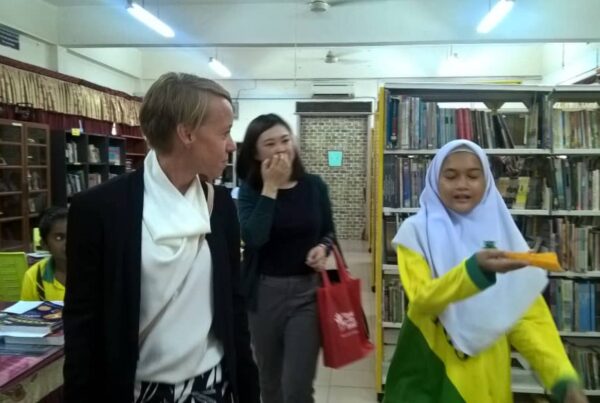We may wonder as parents, educators, civil servants, or just the regular citizen, why people turn out drastically different despite going through the same public school system. If it’s so standardised, then people should all come out of the system with similar education and performance levels, right? The reality is while schools may be somewhat standardised in terms of the syllabus (of course, we have covered in other posts [The Complex Reality of Education Inequity Part 1 & Part 2] about how every other thing may differ even from one class to another), the environment outside the classroom and school isn’t as controlled.
The situation outside schools can adversely affect a student’s performance in school, or whether the student can continue schooling at all. That’s what Ghazlina Poedjo, a 2019 Fellow teaching in Semporna, Sabah, saw first-hand in recent months.
A DIFFICULT SITUATION: SURVIVAL OR SCHOOLING?
Max* is a Form 2 student in Ghazlina’s class. He lives with his aunt in Semporna, as his mum has passed away and his father works in Semenanjung Malaysia. Recently, his family approached Ghazlina to request that Max stop schooling, because his dad, the sole breadwinner, has been diagnosed with cancer and can no longer work. To make ends meet, the family is asking Max and his older siblings to stop school and start working instead. At the time of writing this article, Max has stopped coming to school due to financial constraints and the fact that he has not been performing well in school. Ghazlina recently visited him to try and convince him to come back, and he agreed, but it is yet to be seen if he actually will.

While parents might appreciate the importance of education, they may feel forced to ask their underaged, school-going children to work in order to survive.
Situations like Max’s are not uncommon – not just in Sabah, but all over Malaysia. In many B40 (bottom 40% income group) communities, there is only a single source of income within a family. When that income source is affected, difficult decisions need to be made. While parents might appreciate the importance of education, they may feel forced to ask their underaged, school-going children to work in order to survive. Even though Malaysia does have child labour laws protecting minors, in many less-privileged communities, these laws are not abided by out of the need to survive. In the end, can we blame them for wanting to be able to eat and keep their home?
GETTING TO SCHOOL IS A CHALLENGE WHEN YOU’RE POOR

Freddie* with his teammates collaborating for Accenture Student Leadership Camp (ASLC). ASLC equips students with the skills to run initiatives to solve problems in their communities.
Ghazlina tells Teach For Malaysia about another student of hers, who is also a Form 2 boy. Freddie* is a talented and hardworking student. However, Freddie misses at least one day of school every week. Why? Ghazlina realised the reason when she once drove him back home. His home was very far from the school, deep within a palm oil plantation. Because of this location, Freddie has to hitch a ride with his neighbour to a bus stop a distance away and take a bus to school. Freddie occasionally misses school because he has no transportation to the bus stop or because he cannot afford to pay the bus fare.
Freddie’s parents are divorced, so he stays with his grandmother and aunt on Semporna’s mainland. His father works in Kuala Lumpur, while his mum resides on Semporna Island. Sometimes, Freddie skips school to visit his mum on the island, which he can only do on weekdays. Despite his attendance issues, Freddie is very attentive and helpful in class. Once Ghazlina had a meeting to prep for a competition at 11 a.m in the morning before the school day starts. Freddie got himself to school at 5 a.m because that was the only timing option he had to be able to attend. He waited patiently for 6 hours to join the meeting, and then attended school afterwards. One can only imagine how tiring this must have been, but Freddie did not complain once about it.
This story shows us how poverty can affect even highly-motivated students by robbing them of the chance to get the best education experience possible. Living far away from school means school becomes an expensive affair for students coming from the B40 community. In the worst cases, coming to school at all becomes an improbability, because there is a higher need for limited amounts of money to go into things like food and utility payments.
POVERTY IS NOT A NEW PROBLEM, BUT IT’S CHALLENGING TO SOLVE

Ghazlina with her team when they attended Accenture Student Leadership Camp.
Living in poverty not only affects student attendance, but it can also affect student performance in school. A lot of students from the B40 community come to school without eating breakfast, and some may not be able to afford something to eat at recess. This in itself becomes a hindrance to students being able to focus during lessons. Apart from that, students who live in poverty cannot afford the extra academic help you can get from reference books and tuition classes, which further widens the gap between them and students who come from more financially-able backgrounds. There is also plenty of research worldwide that comes to the conclusion that living in poverty limits educational opportunities, which means students from underprivileged communities often end up in a ruthless cycle where they remain just as poor as their parents and cannot improve the situation for future generations.
So how can we resolve this issue? There is no shortage of opinions on this and no easy solutions either. One way that will help narrow the gap is to offer all students a quality and excellent educational experience at school, enabling students to break out of poverty cycles through education. Teach For Malaysia Fellows make it their mission to offer students from underprivileged backgrounds an excellent education and also provide and connect these students with external opportunities outside the classroom. Alumni of the Fellowship are involved in various careers and initiatives to improve the education system as a whole.
WHAT CAN YOU DO?
As a regular citizen, you might feel that helping the students of Malaysia is not within your power. However, you can do your bit by supporting non-profits that are working hard to help close the gap for students from B40 communities. For example, you can donate and volunteer with nonprofits started and run by TFM Alumni, such as Project ID, MYReaders, and Closing The Gap. You can also indicate interest to support TFM in different ways through our Fundraise for TFM page, and learn more about our Alumni movement here.
A small step is better than no step at all, and even the tiniest efforts can affect the future of students today. We may not be able to eradicate poverty, but we can do our part in breaking students out of the dreaded poverty cycle.
*not his real name. Names have been changed to protect the privacy of students and their families.






